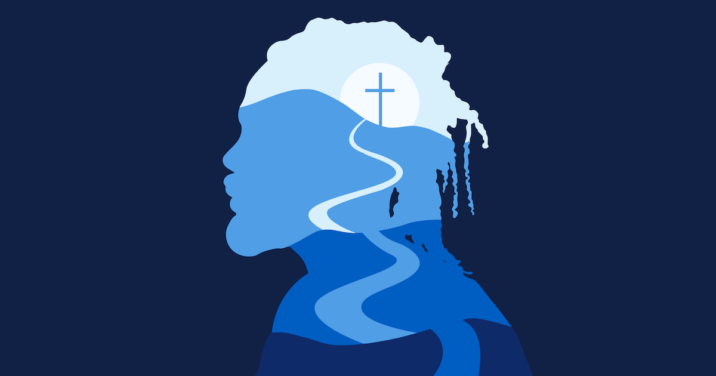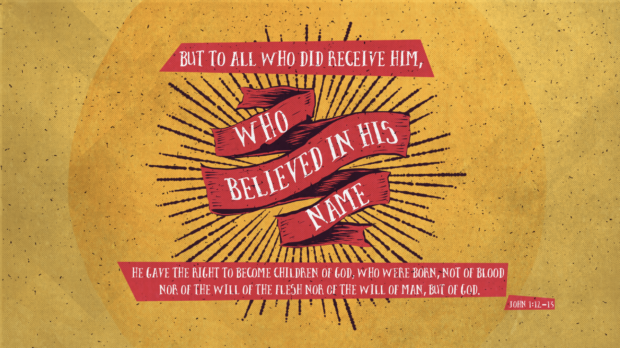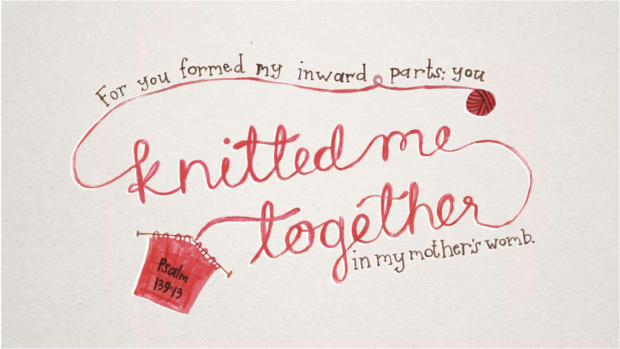Views: 78
-
归档
-
功能

分享
“圣经说我们真正的问题是我们每个人都在耶稣以外的事物上建立我们的身份。”——蒂姆·凯勒
我们在基督里的身份可能同时是我们属灵成长中最重要和最被忽视的部分。发现上帝让你成为什么样的人需要一生。在许多方面,这是基督追随者的终极旅程。然而,我们中的许多人只是没有耐心去寻找我们在永恒的这一边无法完全完成的探索。
面对现实吧。找到你自己——发现你在基督里是谁——并不容易。几年前我读了一个与身份有关的故事,从那以后它一直萦绕在我的脑海中。
一群穿越冰岛的游客在该国南部高地的 Eldgja 峡谷附近停了下来。一名妇女离开去换衣服,但她回来时邻居们都认不出她了。消息很快传开,说他们有一名乘客失踪了。女子不认得失踪者的描述,便加入了搜寻。
五十人搜索了峡谷。海岸警卫队甚至准备了一架直升机来提供帮助。但是在凌晨 3 点,当搜索人员意识到失踪的女人正在寻找自己的搜索队时,搜索被取消了。1个
我对这个女人感到同情。就像我说的,无论您多么努力,都很难找到自己。
对于我们这些在离异家庭中长大的人来说,这尤其艰难。我们的原生家庭在我们寻找身份的过程中发挥着巨大的作用。
我的父母在我三岁时离婚了。我没有他们两个在一起的记忆。我的父母在离婚后仅几年就再婚,所以我有四组大家庭。他们很棒。我很难想象会有更多支持我的大家庭,但他们非常不同。无论人们多么努力地帮助我融入,我总觉得有点格格不入。
但家庭并不是试图弄清楚你是谁的唯一途径。我尝试了各种其他方式。随着年龄的增长,我越是通过性格特征、技能组合以及同龄人的眼光来定义自己。
所有这些方法都失败了。
我现在意识到所有这些路径从一开始就注定要失败。我想说的是,一旦我将自己的生命交托给基督,我立刻就知道我是谁。但基督徒的生活不是这样运作的。我小时候就开始相信基督。作为一个四十六岁的人,我仍然在生活中的每一天都在学习我是谁——上帝创造了谁。
在这篇文章中,我将帮助你采取重要的步骤来发现上帝让你在基督里成为什么样的人:

身份是我们经常听到的一个词,但我们很少停下来为自己或他人定义它。但是,如果我们要确定我们的身份,我们需要从定义我们的意思开始。
我们难以定义身份的部分原因是它有点模糊。例如,您会在世俗资源中找到身份的各种定义,例如:
但我喜欢贝克心理学和咨询百科全书如何描述身份:“在最笼统的术语中,身份指的是一个人对这个问题的回答,我是谁?该领域最著名的思想家埃里克·埃里克森 (Erik Erikson) 提出,身份认同涉及个人独特性和自我连续性的感觉,以及对群体理想的认同。”
当我在这篇文章中写到身份时,我试图回答这个问题:我在基督里是谁?
想想你是如何回答“我是谁?”这个问题的。在过去。我知道我已经回答了很多关于我自己的事实,比如我的职业、我的家庭背景、我的出生地、优点、缺点等等。但是这些回答都没有真正回答问题。真正的答案既简单又深刻。
我们不仅仅是我们所做的事情、我们照镜子时看到的人或我们来自哪里。身份已成为热门话题。关于种族认同、性别认同等的讨论遍布整个文化。我们做对这一点至关重要。但为什么?一个被误解的身份如何让我们出轨?
你有很多依赖于你的身份。这就是你。做对了,把它固定在不会改变的东西(或某人)身上,它会带来信心。这将是你在基督里成长旅程的第一步。
那么去哪里办理身份呢?
你真的只有一个地方可以看。我们的身份始于耶稣来宣告的好消息。
身份与圣经的叙述无关。它是福音的核心,是基督教信仰的中心。在圣经的第一章,创世记告诉我们上帝按照他的形象创造了我们,并呼召我们承担看护地球的神圣任务。但是在创世记第 3 章中,第一对夫妇怀疑他们作为形象持有者的身份并且不服从上帝。
保罗在罗马书中有力地宣告:“世人都犯了罪,亏缺了神的荣耀”(3:23)。使徒在罗马书第 5 章告诉我们,我们的身份与第一个亚当和他的罪息息相关。只有认清我们作为罪人的身份,我们才有希望重新开始。
受人尊敬的新约学者 NT Wright 是这样描述的:“解决这个更深层次问题的唯一方法是与弥赛亚同死,杀死旧的身份,并在与他一起复活的过程中找到一个新的身份,在这个身份中,这些区别不再相关。”2个
我们无法改造我们在亚当里的旧身份。我们在亚当里的身份与上帝对我们的初衷背道而驰。相反,我们必须把我们旧的身份——我们在亚当身上被罪玷污的肉体身份——与基督一起死在十字架上(罗马书 6:5-8),这样我们才能分享他复活的身份。
简而言之,这就是福音,也是理解我们在基督里真实身份的起点。

“只有在上帝里面,我们才能发现我们的起源、我们的身份、我们的意义、我们的目的、我们的意义和我们的命运。其他任何一条路都通向死胡同。”
——里克·沃伦, 目标导向的生活

在基督里活出你的身份与你做了什么无关。这是关于你是谁。正如2 Corinthians 5:17所说,你是基督里的新创造。基于你不再与亚当的罪认同,而是与基督复活的生命认同的福音真理,圣经为我们提供了关于此时此刻我们是谁的惊人真理。
例如:

上帝的话语充满了对上帝呼召我们拥抱的复活身份的描述。它比“在基督里”出现的例子要大得多。事实上,上帝对我们身份的看法不仅仅是新约。从创世记第一章上帝按照自己的形象创造我们,到启示录倒数第二章上帝宣告我们是得胜者,圣经不断地阐明那些跟随耶稣之人的身份。以下是这些经文的几个例子。
基督教标准圣经中的所有圣经经文。
然后上帝说:“让我们按照我们的形象,按照我们的样式造人。他们将统治海里的鱼、空中的鸟、牲畜、整个地球和地上爬行的生物。
—创世记 1:26
因为是你创造了我的内脏;你在我母亲的子宫里把我编织在一起。我会赞美你,因为我被创造得非凡而奇妙。你的作品很奇妙,我很清楚这一点。当我在地下深处被造时,我的骨头并没有向你隐藏。当我无形时,你的眼睛看到了我;我所有的日子都写在你的书中,并在其中一个开始之前就计划好了。上帝啊,你的思想对我来说是多么宝贵;他们的数目是多么巨大啊!如果我数一数,它们比沙粒还多;当我醒来时,我还在你身边。
—诗篇 139:13-18
但自从那信来了,我们就不再受保护,因为因着信,你们在基督耶稣里都是神的儿子。
–加拉太书 3:26
但是对于所有接受他的人,他给了他们权利,让他们成为上帝的儿女,给那些相信他的名字的人。
—约翰福音 1:12
我是真葡萄树,我父是园丁。我身上每根不结果子的枝子他都剪掉,他修剪每根结果子的枝子,使它结出更多的果实。因为我对你说的话,你已经干净了。留在我里面,我也留在你里面。正如枝子若不长在葡萄树上就不能自己结出果实,你若不长在我里面也不能。我是葡萄树;你是树枝。留在我里面的那一位,我也留在他里面,结出许多果子,因为没有我,你什么也做不了。
—约翰福音 15:1-5
我不再称你们为仆人,因为仆人不知道主人在做什么。我称你们为朋友,因为我已将我从父亲那里听到的一切都告诉你们了。
–约翰福音 15:15
但圣灵降临在你们身上,你们就必得着能力,并要在耶路撒冷、犹太全地和撒玛利亚,直到地极,作我的见证。
—使徒行传 1:8
因此,正如因一次过犯,每个人都被定罪,同样,通过一次正义的行为,每个人都可以称义,从而获得生命。因为正如一个人的悖逆使许多人成为罪人,同样,一个人的顺服也使许多人成为义人。
—罗马书 5:18-19
因此,如今那些在基督耶稣里的就不定罪了,因为在基督耶稣里生命之灵的律已经释放你脱离罪和死的律。
—罗马书 8:1-2
那么,我们对这些事情要说什么呢?如果上帝支持我们,谁会反对我们?祂甚至不爱惜自己的儿子,为我们众人舍了。祂怎能不与祂一同赐给我们一切呢?谁能控告上帝的选民?神是称义的那一位。定罪的是谁?基督耶稣是死了的那一位,但更重要的是已经复活了;他也在上帝的右边,为我们祈求。
—罗马书 8:31-34
所以,若有人在基督里,他就是新造的人;旧的过去了,看,新的来了!
– 2 哥林多前书 5:17
你在基督耶稣里是从他而来的,他为我们成了从神而来的智慧——我们的公义、圣洁和救赎。
—哥林多前书 1:30
你不知道你的身体是圣灵的殿,圣灵在你里面,是从神而来的吗?你不是你自己的,因为你是用重价买来的。所以用你的身体荣耀神。
—哥林多前书 6:19-20
没有犹太人或希腊人、奴隶或自由人、男性和女性之分;因为你们在基督耶稣里都合而为一了。
–加拉太书 3:28
因为在基督耶稣里,受割礼不受割礼都不能成就任何事;重要的是通过爱工作的信念。
—加拉太书 5:6
因为你们得救是本乎恩,也因着信,这不是出于自己;这是神的恩赐——不是出于行为,所以没有人可以自夸。
—以弗所书 2:8-9
我们的公民身份是在天堂,我们热切地等待救世主从那里降临,就是主耶稣基督。
—腓立比书 3:20
从前你们不是子民,如今是神的子民;你没有蒙怜悯,现在你蒙了怜悯。
–彼得一书 2:10
得胜者将继承这些东西,我就是他的上帝,他就是我的儿子。
—启示录 21:7

你在基督里的身份与你需要做的任何事情无关,但你可以做一些事情来帮助你拥抱那个身份。换句话说,你在基督里的身份已经是你自己了。你只需要活出那个身份。这三种做法可以帮助您入门。
雪莱·亨德里克斯 (Shelley Hendrix) 曾写道:“当你知道自己是谁时,你就知道该做什么。” 我相信她是对的。就像我在本文开头提到的那样,我一生中的大部分时间都在努力把握自己的身份。我知道我并不孤单。我们很容易将生活建立在琐碎和流动的基础上。这不仅在情感上和属灵上对我们造成困难,而且使我们无法追求上帝对我们生命的旨意,这是他为我们独特设计的。
但在圣经中,上帝敦促我们做一些不同的事情——将我们的一切都建立在他关于他如何创造我们的不变宣言之上。这不是一个快速修复。用关于你身份的真相来重新训练你的思想需要时间。
这是值得的。
Views: 225
神啊,我们向你呼求更新的恩典。我们躺在你的脚凳上呼喊:”主啊,帮助我,否则我就灭亡!”
请在我里面创造新的心,在我里面有正直的灵。
求你在我的心灵里更新我的灵,在我的内在灵魂里更新我。
带走这盲目、虚荣、肉体的旧心。
带走这旧的意志,它是如此顽固,如此颠倒,如此叛逆。
带走这旧有的良心,它是如此的偏颇,如此的危险,如此的无知。
带走这颗旧的心,它永远不会喜悦、遵从或顺服于你。
让旧事过去,让一切都变成新的。你用一句话使这个世界从无到有,也能用一句话在我里面完成新的创造。
请不要让我灭亡。你说有就有,命立就立。只要说一句话,这个灵魂——那处在黑暗的、可悲的混沌之中,充满腐败和混乱的——将成为新的。
主啊,请给我一颗新心,把新的灵注入我里面。你有打开大卫之心的钥匙。当你你关闭的时候,没有人能打开;你打开的时候,没有人能够关闭。主啊,请你打开这颗长久以来对你关闭的心,打破那些使你远离我的堡垒。
驱赶罪恶,驱赶长期以来使你无法拥有的世界,捆绑刚硬的人,把他赶出去。
其他偶像曾支配过我;他们使我痛苦,因为他们把我的主,我的幸福,从我身边挡住。赶走这些入侵者,求你占有我,并永远成为我的所是。
主啊,我的心听见你的呼唤,它是你的。虽然我曾背信弃义,把我的心归属于除你以外的事物,但它仍然是你的。这让你付出了沉重的代价,神啊,请进来占有我的心吧。
你敲开了这可怜的心门。神啊,不要在外面呆这么久!进来吧,用你实存的祝福临到我,神啊,求你用全能者的力量打开它,不要让它把你关在外面。阿门。
大卫-克拉克森
大卫-克拉克森,”对更新的恩典的呼喊”,载于《刺破天堂——清教徒的祈祷》中。Robert Elmer (Bellingham, WA: Lexham Press, 2019), 20-21.
Views: 61
没有基督的公义就没有盼望!
主啊,如果我的希望只在今生,我将是世界上最悲惨的人。为什么?因为没有基督的公义,我就没有希望。我的生活中感受不到任何的安慰,而且在永恒生命之上我讲失去任何的盼望。
主啊,如果你消灭我这个盼望,我将是最悲惨的那一位。我可能会很喜乐即便没有世俗的享受,但没有盼望,世界上所有的一切都无法使我喜乐。
因此,无论你在这个世界上如何对待我,无论你拒绝我,主啊,不要拒绝给我盼望。我可以在没有财富和富足的情况下获得幸福,就像约伯和拉撒路那样。即使我被谩骂和责备,我也能在喜乐中度过,就像基督和他的门徒一样。我可以像保罗和西拉一样,在监狱里仍然感到喜乐与安慰。
但如果没有基督的公义,我就不能快乐。
如果我没有了基督的公义,世上所有的财富、地位或荣誉都会让我感到痛苦。即使我很富有,什么都不需要,因为如果没有公义,我仍然会感到如此可怜、悲惨、贫穷、瞎眼、赤身露体。
如果我拥有一个人在世上所渴望的一切,没有基督的公义,对我有什么好处?
如果财富伴随着神的愤怒而来,那财富给我带来的是什么?如果我仍然是灭亡或愤怒之子,那些荣誉能给我带来什么安慰呢?
如果我在通往永恒尽头苦难的道路上,这快乐又有什么甘甜呢?
如果没有基督的公义,这些舒适与享受是多么的可悲!
主啊,无论你在外面的事情上如何对待我,无论你从我这里拿走什么,无论你拒绝我什么——求你不要拒绝我在基督里的恩典!不要让我与基督无份,不要让我与基督的公义无份! 阿门!
-大卫-克拉克森
大卫-克拉克森,《没有基督的公义就没有希望》,载于《刺破天堂——清教徒的祈祷》中。Robert Elmer (Bellingham, WA: Lexham Press, 2019), 17-19.
Views: 60
主啊,教我祷告,使我可以呼求你的名。预备我的心去寻求,慈悲地打开我的耳朵来向你敞开。
全能的、永恒的主神,你是天地万物的创造者和持续的保护者。因着你的恩典,我起初被造是如此的不同凡响,直到现在,你还存留我,保护我。
我是你手中的工匠,我希望在你的天国威严面前,让我的灵魂和身体尽都谦卑。
所以在你面前,主啊,我承认我自己不配来到你面前,不配呼求你,不配履行对你的敬拜和荣耀,虽然这也是我最基本的职责。
因为我的心是污秽不洁的,我求你为耶稣基督、你的独生爱子的缘故恩待我。为了他的应许、真理和恩慈,请怜悯我。
赦免我所有的罪,不义,以及我对你所犯的罪,在我所说的和所做的之中。阿门。
-罗伯特-帕克
罗伯特-帕克,”预备我寻求你”,载于《刺破天堂-清教徒的祈祷》中。Robert Elmer (Bellingham, WA: Lexham Press, 2019), 16-17.
Views: 81
我们的天父,你坐在至高无上的荣耀宝座上,我们以谦卑的敬意在你可怕的存在面前鞠躬。即便如此,我们还是满怀信心地接近你,我们是你的孩子,你是我们丰盛而慈悲的天父。
我们以充满兄弟之爱的心向你祈祷,并为对方祈求我们为自己寻求的祝福。
最重要的是,我们渴望你的荣耀。愿你的名分别为圣。愿整个世界的生灵与我们一起给予你应得的和应有的荣耀。愿你的国度降临,你的旨意在我们中间成就。帮助我们认识、理解和追求你的国度。
愿你的旨意,总是智慧和仁慈的,在地上实现,就像在天上一样。教导我们凡人顺服于你,就像你天上的天使顺服于你一样。
至于我们自己,主啊,帮助我们不要寻求生活中的大事,帮助我们不要担心未来。但我们谦卑地请求你打开你丰盛的手——这是我们一直依赖,赐给我们今天所需的日常供应,并教导我们祈求你照顾我们身边的人。
虽然在许多方面我们是不听话和不感恩的孩子,但我们求你,慈悲的父亲,原谅我们的冒犯。我们知道我们在你的圣书中是有罪的,有我们永远无法偿还的债务。但请你宽恕这些债务,就像我们宽恕别人一样,即使是那些冒犯和伤害过我们的人。我们要求得到我们愿意给予他人的同样的宽恕。
不要把我们带到紧迫的试探之地,在那里我们会失去诚信,我们的灵魂会受到威胁。但是,如果我们必须接受考验,请慷慨地把我们从那恶者的权势中解救出来,使他不致得胜。
我们知道你能为你的孩子做这些事,我们谦卑地相信你会,因为你是普世的国度,是全能的丰盛,是无限完美的荣耀。愿所有的赞美都归于你,直到永远。
阿门。愿如此,我们真诚恳切地希望你能得到荣耀,我们的祷告能被听到和接受。阿门。
菲利普-多德里奇
菲利普-多德里奇,《我们的主祷文》,载于《刺破天堂——清教徒的祷文》,编辑。Robert Elmer (Bellingham, WA: Lexham Press, 2019), 13-15.
Views: 80